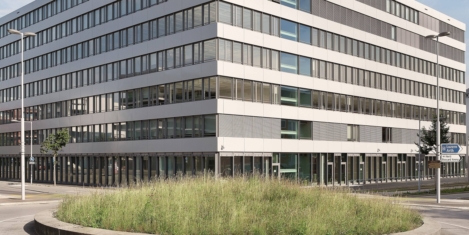To provide the best experiences, we use technologies like cookies to store and/or access device information. Consenting to these technologies will allow us to process data such as browsing behaviour or unique IDs on this site. Not consenting or withdrawing consent, may adversely affect certain features and functions.
The technical storage or access is strictly necessary for the legitimate purpose of enabling the use of a specific service explicitly requested by the subscriber or user, or for the sole purpose of carrying out the transmission of a communication over an electronic communications network.
The technical storage or access is necessary for the legitimate purpose of storing preferences that are not requested by the subscriber or user.
The technical storage or access that is used exclusively for statistical purposes.
The technical storage or access that is used exclusively for anonymous statistical purposes. Without a subpoena, voluntary compliance on the part of your Internet Service Provider, or additional records from a third party, information stored or retrieved for this purpose alone cannot usually be used to identify you.
The technical storage or access is required to create user profiles to send advertising, or to track the user on a website or across several websites for similar marketing purposes.















 In spite of all the evidence and their own experiences, over half (55 percent) of office workers believe access to the latest workplace technology would make them more productive; 43 percent said this would make them feel more valued, while 38 percent said it would motivate them to work harder. This is according to research for the report, The Hidden Value of Workplace Technology, conducted on behalf of Econocom by survey consultant Censuswide. The research found that workplace tech is important not just for companies looking to retain existing staff, but also to recruit new members.
In spite of all the evidence and their own experiences, over half (55 percent) of office workers believe access to the latest workplace technology would make them more productive; 43 percent said this would make them feel more valued, while 38 percent said it would motivate them to work harder. This is according to research for the report, The Hidden Value of Workplace Technology, conducted on behalf of Econocom by survey consultant Censuswide. The research found that workplace tech is important not just for companies looking to retain existing staff, but also to recruit new members. 






 The majority of employees are disappointed with their company’s lack of investment in technology, and despite the fact three quarters (76 percent) want to request flexible working – almost half still don’t have the option of working more flexibly, a new report from a technology company claims. According to the survey by technology company Ingram Micro Cloud UK, in collaboration with technology company Microsoft, despite the fact that Millennials and Centennials are often thought to be the driving force behind changing workplace practices – and are often derided in popular discourse for having unreasonable and unrealistic expectations – the calls for change are coming from all segments of the workforce. However, 85 percent of Millennials admit to procuring their own workplace technologies such as instant messaging, Skype, file hosting and sharing tools (all available from Ingram Micro Cloud) that aren’t supported or provided by their employer, which raises major security issues, acco.
The majority of employees are disappointed with their company’s lack of investment in technology, and despite the fact three quarters (76 percent) want to request flexible working – almost half still don’t have the option of working more flexibly, a new report from a technology company claims. According to the survey by technology company Ingram Micro Cloud UK, in collaboration with technology company Microsoft, despite the fact that Millennials and Centennials are often thought to be the driving force behind changing workplace practices – and are often derided in popular discourse for having unreasonable and unrealistic expectations – the calls for change are coming from all segments of the workforce. However, 85 percent of Millennials admit to procuring their own workplace technologies such as instant messaging, Skype, file hosting and sharing tools (all available from Ingram Micro Cloud) that aren’t supported or provided by their employer, which raises major security issues, acco.








January 4, 2019
Why new technology can still make employees happier, healthier and more efficient
by Elaine Rossall • AI, Comment, Flexible working, Lighting, Technology, Wellbeing
For many years, we became used to new technology being treated with excitement. Essentially, people thought technology made their lives better. More recently this consensus has been tested. On a very practical level, there is growing concern about the impact of everyday technology. ‘Screen-time’ has become a byword for anxiety and disengagement from the real world. Meanwhile, there is trepidation about the impact of future technology, such as the automation of jobs. Whilst caution is needed, there is a danger that we are forgetting the many benefits technology can bring. As an example, look to the workplace. Already, offices are gaining hugely from technology that benefits employee wellness and productivity. However, we have only just begun to feel its impact. A ‘fast’ office may sound like an oxymoron. A building isn’t going to win a 100-metre race. Yet fast offices, which allow employees to control their immediate environment, are becoming increasingly common.
More →